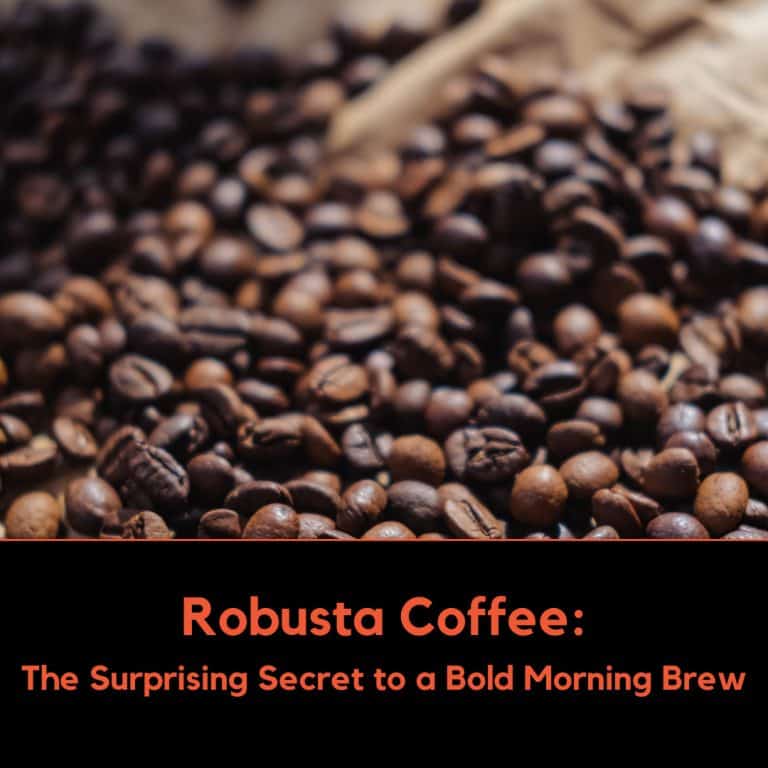Picture yourself in the coffee section, searching for the ideal blend to kickstart your day. You see bags labeled “Arabica” and others marked “Robusta.” Until now, you never really considered the variety of coffee beans available.
Fear not, you’re not alone in the great Arabica vs. Robusta conundrum!
In this beginner’s guide, we’ll walk you through the basics, addressing questions like:
What sets Arabica coffee beans apart from Robusta coffee beans?
Which bean should I choose for my morning coffee?
Are there other coffee bean varieties worth knowing about?
Is Robusta genuinely the most potent coffee?
What makes Robusta coffee stand out?
Join us on this caffeinated adventure as we explore the wide world of coffee beans and assist you in making an educated choice for your next brew!
20% off first coffee subscription order with code COFFEECLUB20
Arabica Vs Robusta Coffee: A Quick Introduction
Before we dig into the Arabica vs. Robusta face-off, let’s briefly meet these two coffee bean titans.
Arabica Coffee:
The most sought-after coffee bean worldwide, representing around 60-70% of global coffee production.
Renowned for its smooth, mild flavor, and slightly sweet taste with fruity and chocolatey undertones.
Cultivated at higher altitudes (usually 2,000-6,000 feet above sea level) in countries like Brazil, Colombia, and Ethiopia.
Robusta Coffee:
The second most popular coffee bean, contributing to about 30-40% of global coffee production.
Often characterized by a stronger, more bitter taste than Arabica, with a nutty, earthy flavor.
Grown at lower altitudes (usually 0-2,000 feet above sea level) in countries like Vietnam, Uganda, and Indonesia.
Now that you have a fundamental understanding of Arabica and Robusta, let’s delve into their differences and see which bean triumphs in the quest for coffee supremacy!
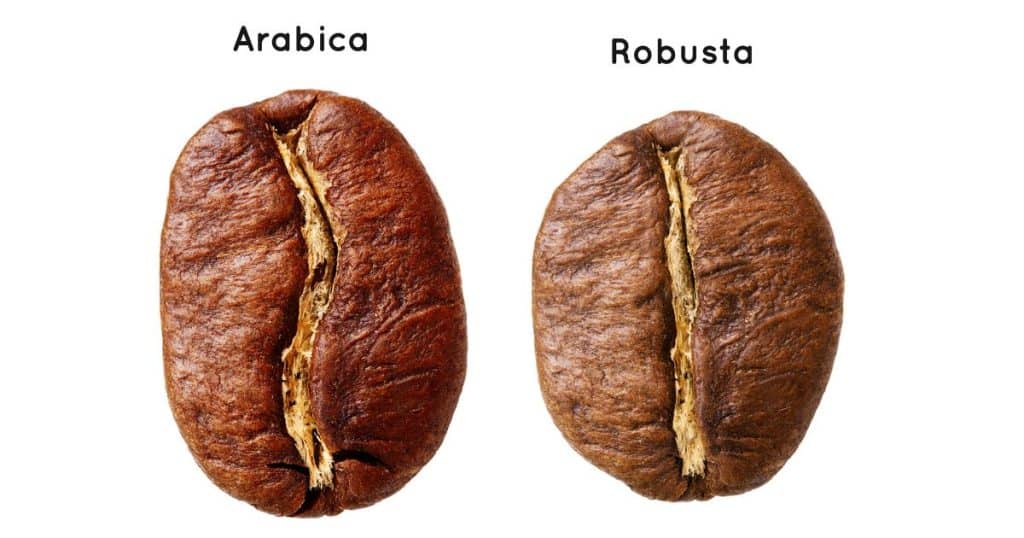
Contrasting Arabica And Robusta
To grasp the Arabica vs. Robusta debate, let’s explore their main distinctions, including taste, caffeine content, and growing conditions.
Taste And Flavor Profile: Arabica beans provide a more subtle, mild flavor, often featuring fruity, floral, or chocolatey notes. They usually have balanced acidity and a smooth, well-rounded finish.
In contrast, Robusta coffee beans deliver a bolder, more bitter kick. They typically have an earthy, nutty taste and a heavier body, occasionally with a touch of a woody or rubbery aftertaste.
Caffeine Content: Arabica beans contain less caffeine, generally around 1-1.5% by weight.
Robusta beans boast almost twice the caffeine, measuring around 2-2.7% by weight. This additional caffeine kick contributes to their stronger, more bitter taste.
Growing Conditions And Cultivation: Arabica plants flourish in higher altitudes and cooler temperatures, needing more care and attention from farmers. They’re also more vulnerable to pests and diseases, making them slightly more challenging to cultivate.
Robusta plants are sturdier, growing well in lower elevations and warmer temperatures. They’re more resistant to pests and diseases, which can make them a more economical choice for farmers.
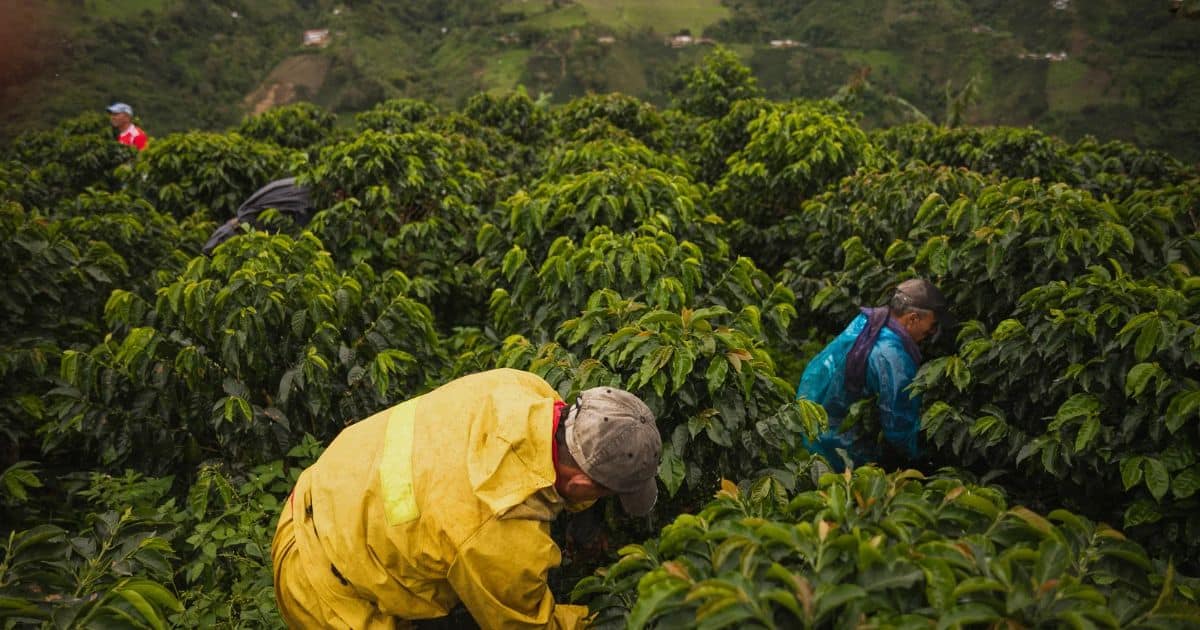
The 4 Types Of Coffee Beans
While Arabica coffee beans and the Robusta coffee bean are the most common, two other lesser-known varieties might pique your interest in your coffee journey. Let’s take a brief look at all four types:
Arabica Bean: As previously mentioned, these beans are famous for their smooth, mild taste and are the most widely consumed coffee beans in the world.
Robusta Bean: Known for their stronger, more bitter flavor profile, these beans pack a punch with their higher caffeine content.
Liberica Bean: A rarer variety, Liberica beans are primarily grown in the Philippines. They’re known for their unique, fruity flavor and aroma, often described as having a “floral” or “woody” character.
Excelsa Bean: Technically a sub-variety of Liberica, Excelsa beans are grown mainly in Southeast Asia. They’re celebrated for their tart, fruity taste and complex flavor profile, which can add depth to coffee blends.
Now that you’re familiar with the four types of coffee beans, let’s dive back into the Arabica vs. Robusta debate and figure out which one might be the best choice for you.
Which Is Superior: Arabica Or Robusta?
Now that you understand the differences between Arabica and Robusta, you might be wondering which one is better for your morning brew.
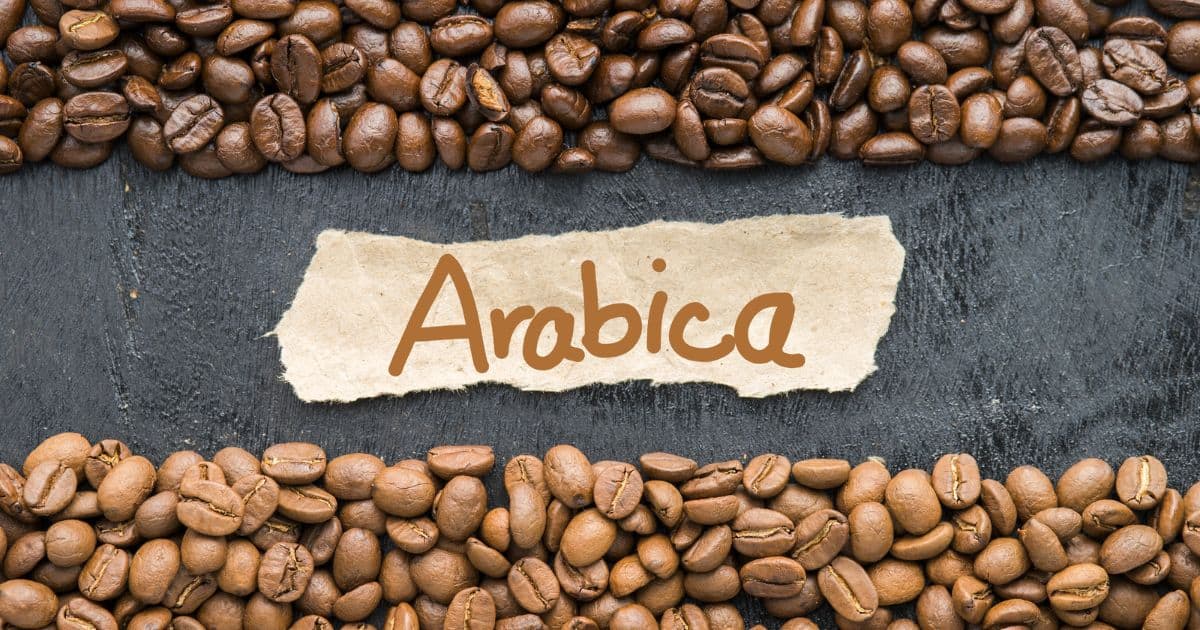
The answer, as with many things in life, depends on your personal preferences and how you like your coffee. Here are some factors to consider:
Taste: If you’re after a smooth, mild, and well-balanced cup of coffee, Arabica is your go-to bean. However, if you prefer a bolder, more intense flavor, you might want to give Robusta a try.
Strength: Robusta beans have a higher caffeine content, which can translate to a more robust, energizing cup of coffee. If you need that extra kick to get you going in the morning, Robusta might be the way to go.
Price: Arabica beans are often more expensive due to their higher cultivation costs and overall popularity. If you’re on a budget, Robusta beans can be a more affordable option without sacrificing too much on taste.
Ultimately, the choice between Arabica and Robusta comes down to personal taste and priorities. You might even consider experimenting with blends that combine the best of both worlds!
Is Robusta The Strongest Coffee?
In terms of caffeine content, Robusta is indeed stronger than Arabica, as it boasts nearly double the caffeine levels. This extra jolt of caffeine can make Robusta a popular choice for those who need a more potent pick-me-up or prefer a drink with a bolder, more intense flavor.
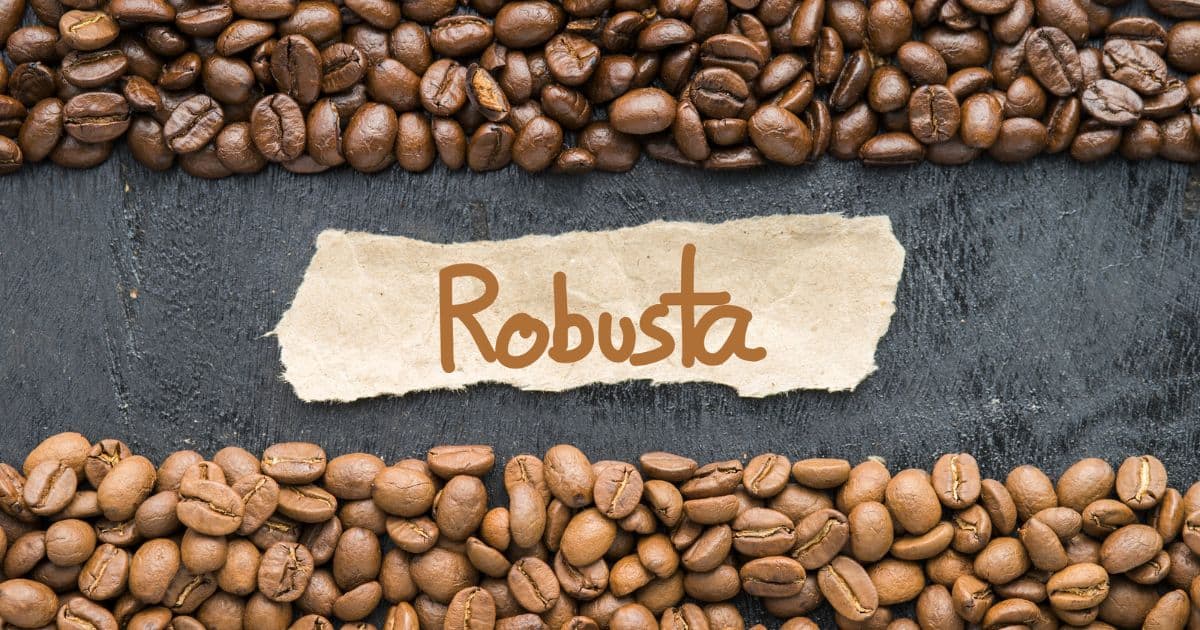
However, it’s important to note that strength can be subjective and might also depend on factors such as roast level, brewing method, and personal taste preferences. For example, a dark-roasted Arabica coffee can taste quite strong and bold, even though it has less caffeine than Robusta.
So while Robusta is generally considered the stronger coffee in terms of caffeine content, you may find that other factors influence your perception of strength in your morning cup.
The Future Of Robusta
So, what’s next for Robusta coffee? Despite its historically less favorable reputation compared to Arabica, Robusta has a lot going for it. Let’s take a look at what makes Robusta coffee special and how it’s evolving in the world of coffee.
Climate resilience: As a hardier coffee plant that can withstand warmer temperatures, Robusta may become increasingly important in the face of climate change. As conditions become more challenging for Arabica cultivation, Robusta could help meet the growing global demand for coffee.
Improving quality: With advances in cultivation practices and a growing interest in specialty coffee, Robusta’s quality is steadily improving. Farmers and coffee producers are experimenting with new processing techniques and investing in better bean selection, leading to tastier Robusta coffees that can rival some Arabica beans in terms of flavor.
Blending potential: Robusta’s unique characteristics, such as its bold flavor and high caffeine content, make it an excellent candidate for blending with other coffee varieties. By combining Robusta with Arabica or other beans, roasters can create intriguing and balanced coffee blends that cater to a wide range of tastes and preferences.
Emerging specialty market: As more consumers seek out diverse coffee experiences, Robusta is gaining traction in the specialty coffee market. This shift presents opportunities for coffee producers and roasters to innovate and create new, exciting Robusta-based products that cater to adventurous coffee lovers.
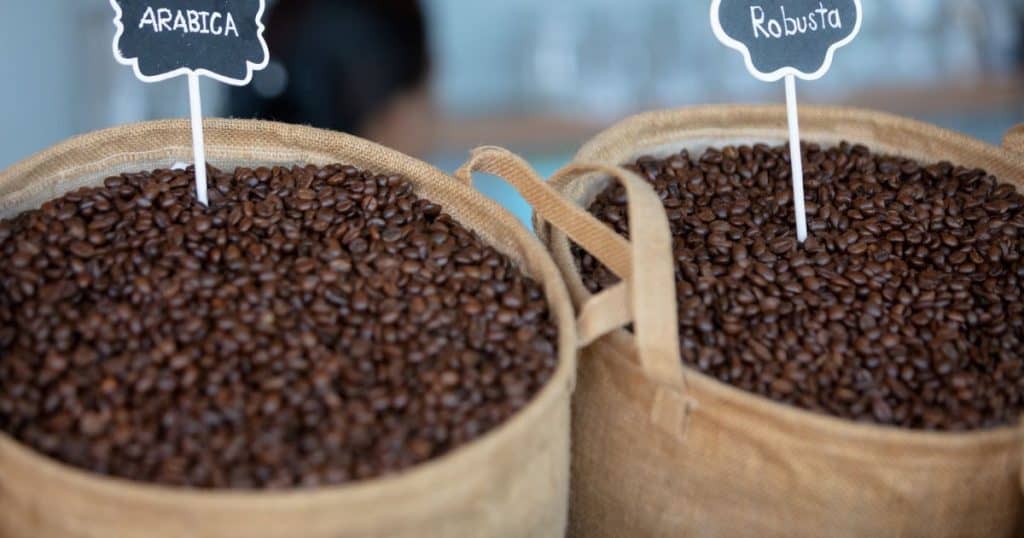
The Final Brew: Arabica vs. Robusta Recap
The Arabica vs. Robusta debate comes down to individual preferences and priorities. Both beans have unique characteristics, and exploring their flavors can be an exciting journey. As the coffee industry continues to evolve, we can look forward to more diverse and delicious coffee options in the future. So, whether you’re a fan of the smooth, mild taste of Arabica or the bold, robust flavor of Robusta, there’s a world of coffee out there waiting for you to explore. Happy brewing!
Frequently Asked Questions
How Does The Roast Level Affect The Flavor Of Arabica And Robusta Beans?
The roast level significantly impacts the flavor of both Arabica and Robusta beans. Lighter roasts tend to emphasize the beans’ inherent flavor characteristics, while darker roasts can introduce bolder, more intense flavors. For Arabica, a lighter roast may bring out its fruity or floral notes, while a dark roast can accentuate its chocolatey or caramel undertones. Robusta beans can benefit from medium to dark roasts, which can help tame their natural bitterness and enhance their nutty and earthy flavors.
Are There Health Benefits Associated With Arabica And Robusta Coffee?
Both Arabica and Robusta coffee contain various antioxidants and nutrients that can contribute to overall health when consumed in moderation. Research suggests that coffee may help improve cognitive function, reduce the risk of certain diseases, and even boost physical performance. However, it’s important to note that excessive caffeine intake can lead to adverse effects, such as increased heart rate, anxiety, and sleep disturbances. It’s best to enjoy coffee in moderation and consult your healthcare provider for personalized advice.
Can I Use Arabica And Robusta Beans For Cold Brew Coffee?
Yes, you can use both Arabica and Robusta beans for cold brew coffee. Cold brewing typically results in a smoother, less acidic coffee, which can be particularly complementary to Arabica’s already mild flavor profile. However, using Robusta beans in a cold brew can also produce a unique, bold taste, especially if you prefer a stronger and more robust flavor in your cold brew. Feel free to experiment with different bean varieties, blends, and ratios to find your perfect cold brew recipe.
How Do I Choose The Best Coffee Beans For My Taste Preferences?
Selecting the best coffee beans for your taste preferences involves considering factors such as bean type (Arabica or Robusta), roast level, and origin. If you enjoy milder, smoother coffee with fruity or floral notes, opt for Arabica beans. If you prefer a bolder, more robust flavor, Robusta might be your go-to choice. Pay attention to the roast level, as lighter roasts tend to highlight the beans’ inherent flavors, while darker roasts can introduce more intense, deeper notes. Finally, explore beans from different origins, as the growing conditions and processing methods can significantly impact the beans’ flavor profiles.

